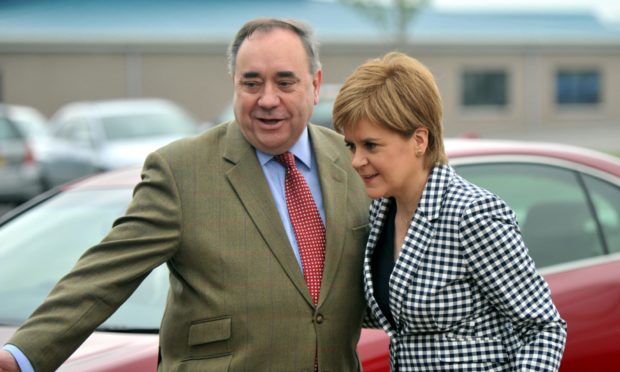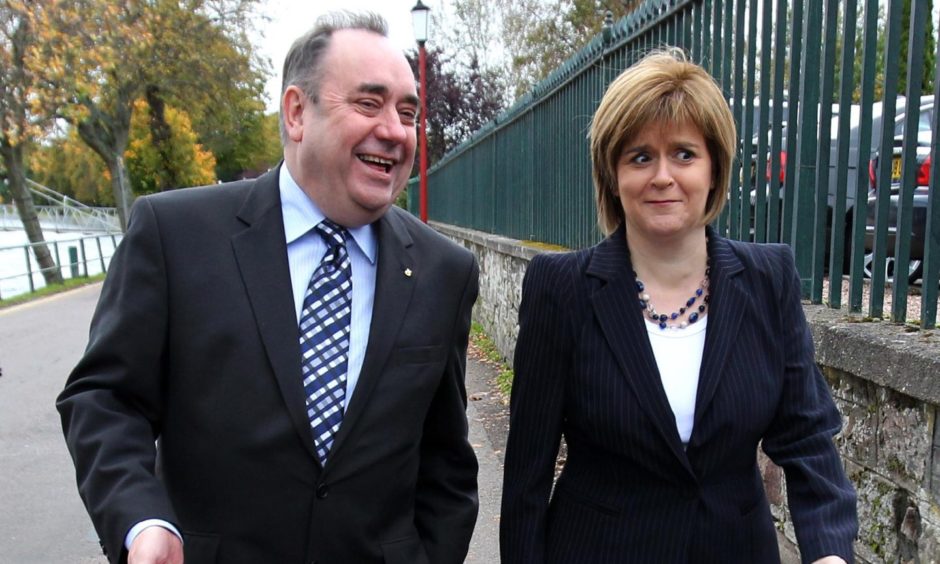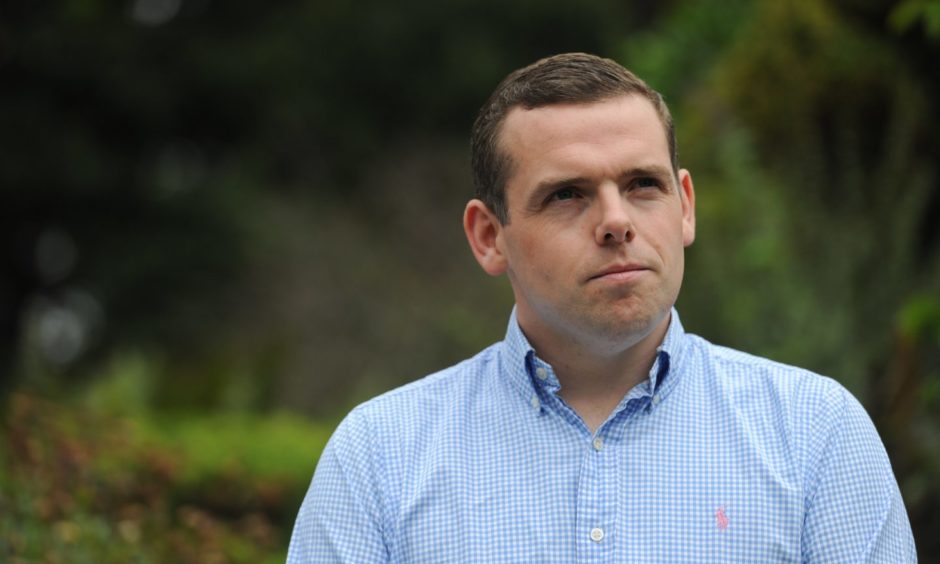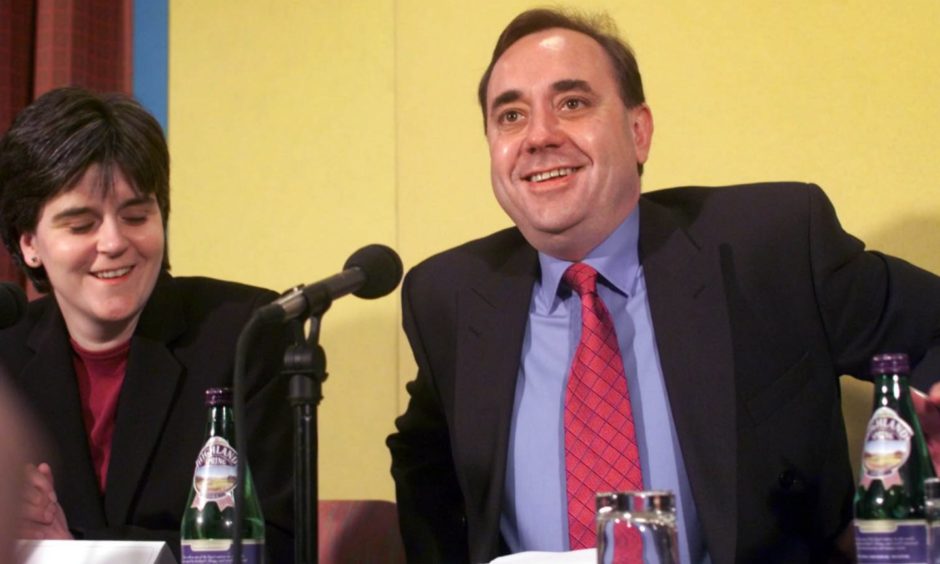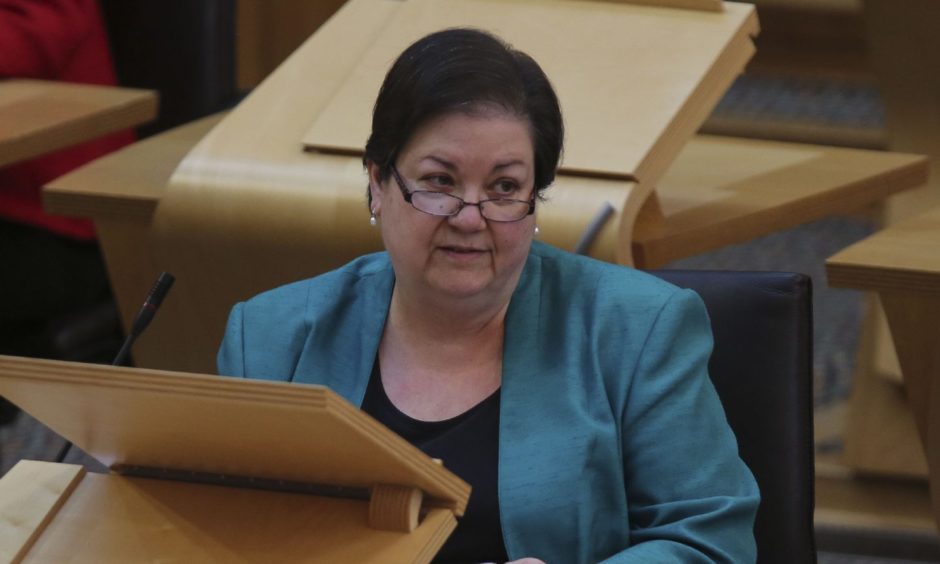“Serious questions remain” over the conduct of the first minister in the handling of harassment complaints against Alex Salmond, opposition parties claim following an eight-hour evidence session.
Nicola Sturgeon, speaking under oath, insisted she would “never have wanted to ‘get’ Alex Salmond” and “must rebut the absurd suggestion that anyone acted with malice or as part of a plot” against the former first minister.
In her opening statement, she apologised to the public and the women who submitted sexual harassment complaints about Mr Salmond, admitting there had been a “very serious mistake” in the government’s botched investigation.
However, Ms Sturgeon argued she had “refused to follow the age old pattern of allowing a powerful man to use his status and connections to get what he wants”, following claims her former ally wanted her to intervene in the process.
The committee grilled the first minister in depth on allegations she breached the ministerial code over meetings in 2018.
Ms Sturgeon initially informed MSPs that she was told about a complaints process that was under way against Mr Salmond when she met him at her home on April 2 2018.
However, she later said she had “forgotten” about another meeting four days earlier with Geoff Aberdein, former chief of staff to Mr Salmond.
Mr Salmond has claimed these talks set up the April 2 meeting.
However, the first minister told MSPs that Mr Aberdein “did indicate a harassment-type issue had arisen, but my recollection is he did so in general terms”.
She said she wishes her memory of the meeting on March 29 was “more vivid”.
Describing the April 2 meeting in her home with Mr Salmond, she said while he denied the complaints against him he gave his account of “one of the incidents complained of which he said he had apologised for at the time”.
Ms Sturgeon said: “What he described constituted in my view, deeply inappropriate behaviour on his part, perhaps another reason why that moment is embedded so strongly in my mind.”
On her decision not to record the meeting, the first minister said she did “not want to compromise the independence or the confidentiality of the process under way”.
She continuously maintained she did not get involved in the Scottish Government’s investigation into her predecessor, arguing it would have been an “abuse of power” to have “intervened on behalf of Alex Salmond to try and engineer the outcome he wanted”.
Scottish Conservative leader Douglas Ross said it was “plainly absurd” for Ms Sturgeon to “ask us to believe her account of a secret meeting that she claims to have forgotten entirely, instead of the evidence of multiple credible witnesses”.
His party has called for Ms Sturgeon to resign after two witnesses backed up Alex Salmond’s claim that the first minister misled parliament about a meeting with her predecessor.
Written evidence from Duncan Hamilton – a former SNP MSP and lawyer for Mr Salmond and the SNP’s former communications director Kevin Pringle – reveal they both believe Ms Sturgeon was aware the meeting would be about the government’s investigation of Mr Salmond.
Mr Ross: “Geoff Aberdein’s account can be corroborated. The alternative version of events, that Nicola Sturgeon wants the public to believe, cannot, so it is now clear that Nicola Sturgeon repeatedly misled the Scottish Parliament.”
Scottish Labour deputy leader Jackie Baillie, who sits on the committee, said while the first minister’s appearance before the committee was “welcome”, it is “not much further forward in understanding her role in this catastrophic failure of the Scottish Parliament”.
She said: “On several occasions, Nicola Sturgeon has stated that she did not offer to intervene in the process in favour of Mr. Salmond.
“This has been disputed by the testimony provided by several witnesses. It is simply unbelievable that the reason for this discrepancy in accounts is that she was trying to let Mr. Salmond down gently.
“Time and time again, Nicola Sturgeon assumed responsibility for the litany of failures of her government but still no one has resigned for these failures.”
Ms Baillie added that “serious questions remain over the first minister’s conduct”.
Raw emotions
Visibly emotional at times, Ms Sturgeon frequently made reference to her previously long-standing personal relationship with Mr Salmond who she “cared about for a long time”.
She described her former ally of three decades as someone she had “looked up to and revered” since she was “20, probably younger than that”.
She said she had “thought often” about the impact on her predecessor but had found herself “searching for any sign, any sign at all, that he recognised how difficult this has been for others too”.
The first minister faced questions about a claim that a government official had leaked the name of one of the complainers to Geoff Aberdein, who had previously been Mr Salmond’s chief of staff.
Ms Baillie pressed Ms Sturgeon on the issue, saying that in any other position doing this would be a “sackable offence” as she demanded to know if the first minister or the Permanent Secretary Leslie Evans had authorised this.
However, the SNP leader said she did not accept that had happened and therefore did not accept that it was authorised.
While the evidence session was still underway in the Scottish Parliament, Mr Salmond lodged a formal complaint with the head of Scotland’s civil service “on the conduct of the official who is alleged to have breached civil service rules, by disclosing the name of a complainant in the Scottish Government process”.
Ms Sturgeon was also asked about a leak of the Scottish Government investigation to the Daily Record newspaper in 2018, which broke the news of the allegations.
She said the the leak “didn’t come from me, or anyone acting on my instruction or request”.
The Scottish Government launched an investigation into allegations of sexual harassment by the former first minister, but it was found to be unlawful, unfair and “tainted by apparent bias” because of prior contact between the investigating offier and two of the women who complained.
Redacted legal advice published by the Scottish Government on Tuesday evening showed that lawyers advised them in September 2018 that there “is a real risk that the court may be persuaded by the petitioner’s case in respect of the ground of challenge based on ‘procedural unfairness’.”
Ms Baillie said she did not think she has ever felt “quite so frustrated” in her 22 years of being on parliamentary committees as she had been with this inquiry.
She told Ms Sturgeon that information received from the Scottish Government has been “partial and late”.
She added: “The legal advice has taken two votes in parliament and a motion of no confidence in John Swinney before we saw it last night at 6pm.
“And there is information missing.”
In response, the first minister said she would “reflect seriously” on what Ms Baillie had said but there were concerns about the release of the legal documents.
She added that Deputy First Minister John Swinney had indicated further documents would be made available, a process that she understands is “under way”.
Committee convener Linda Fabiani said the committee shared Ms Baillie’s concerns about the evidence and would be meeting to discuss whether the government had complied with its request.
